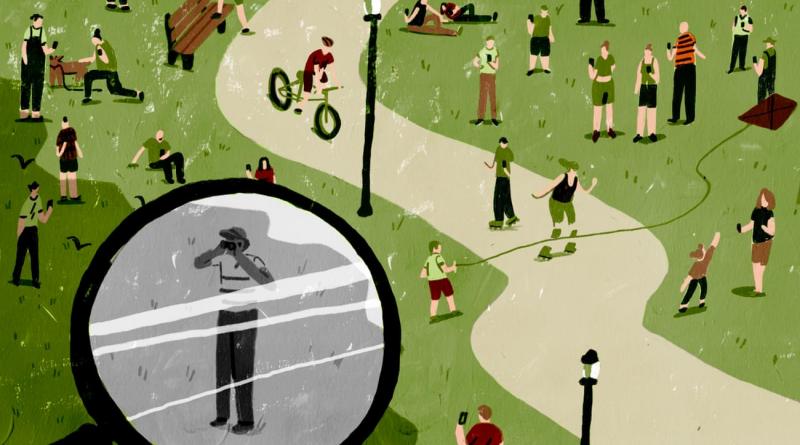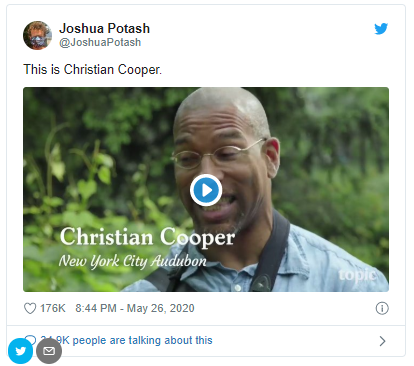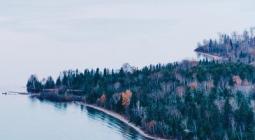Being black while in nature: 'You’re an endangered species'.

Many black nature-lovers have to employ defense mechanisms – lest a situation turn sticky and they have to answer questions from a suspecting police officer
‘I want to go, to just sit and soak it up, but I can’t because I am afraid of what humans might do to me’. Illustration: Jamiel Law/The Guardian
It was 2011 when Rue Mapp was followed by a white woman in an Oakland, California, park, while out on a national campaign to get local families connected with nature.
The woman had spotted the group en route to the park and decided to follow them. When they got off the bus, she followed them all the way through the park, and when they began to play in the dirt, she started to harass them. She claimed they were bringing “invasive species” into the park.
“The kids around me might have rightly been thinking, ‘Is she talking about us?’” says Rue, who is black. She says the incident brought “so many levels of shame, embarrassment and of not feeling welcome in nature”.
If that incident were filmed today, it would probably go viral, just as the harassment of Christian Cooper did this week. The video, circulated hundreds of thousands of times in the last week, shows Amy Cooper, a white woman calling the police on Cooper, an avid bird-watcher, after he asked her to put her dog on a leash in a popular bird-watching section of Central Park. “I am going to call the police and tell them an African American man is threatening my life,” she threatened.
In the days after the video went viral, the woman lost her job and surrendered her dog – but many black people say that it is not an isolated incident.
“This is a story beyond one person, a story beyond that park. It is a story writ large of who owns spaces, who has privileges to those spaces,” says author and black birder Drew Lanham.
Lanham wrote an essay on rules for the black birder in 2013. “You’re an endangered species – extinction looms. You know all the black birders like siblings and can count them on two hands. You’re afraid to have lunch with them all because a single catastrophe could wipe the species from the face of the earth,” reads rule nine of the former set of rules.
Jason Ward, whose popular birdwatching series Birds of North America features Christian Cooper, decides to view the injustice the same way a bird would see the world: migrating through spaces, stopping at places that benefit them and passing over ones that offer them nothing.

For Ward, the places where he can’t stop look like rural parts of Georgia; anywhere with Confederate flags – and yes, sometimes big cities, too. His brother, also an avid birdwatcher, has had the police called on him while birdwatching in Central Park.
“It is unfortunate that we as birders of color have to look over the world this way … But I don’t want the cops called on me or to have an unpleasant interaction so I [often] think, ‘let me cut this outing short and come back another time.’”
These are defense mechanisms that Ward and many other black nature-lovers have to employ when out in the wild – lest a situation turn sticky and they have to answer questions from a suspecting police officer. In short, in a battle of he-said-she-said, most black people know who the burden of proof falls on.
“What Amy Cooper proved is what many black people already know: that it is not just people in police uniforms [who have power over us]. There are ordinary citizens who take the privilege of impunity and will weaponize it instantly against you. Part of white privilege is this ability to have your words believed before black people are believed,” says Lanham.
Mapp’s own encounter with racism in that Oakland city park did not put her off, it emboldened her to create Outdoor Afro – an organization which encourages black nature lovers into the outdoors in over 30 states.
“I am tired of the narrative of black bodies being harmed in nature and in the outdoors,” she says. “From a practical perspective, we all pay taxes on these public lands and so to enjoy them is an exercise of our citizenship. It is what being American is all about,” she says.
“The experience [in an Oakland Park] crystalized the importance of creating a community for black people who want to be in nature. Having groups of people, so we can feel protected and more resilient, has been part of our model from the very beginning,” says Mapp. The worst thing that could come of the incident in Central Park this week, she says, is that black people are put off from exploring nature. African Americans make up just 7% of pass-holders at national parks, while white people make up 78%.
It has been argued that this unequal access is the product of unequal interest, but there is a long history of public lands spaces intentionally excluding black people, including through very concrete rules which prevented black people from accessing public lands.
Lanham goes back to his nine rules to exemplify this. When he considers going on a specific trip, alongside weighing up the many universally good factors (nature’s beauty) as well as the bad (the possibility that he will get stung by a wasp or step on an ants’ nest), he also has to make other decisions, mostly based on his safety. “I have to make decisions about where I go, when I go, who I go with, what people will be thinking of me when I am there. I need to make sure I am wearing the right thing, that my car registration is in the right place so when I am stopped, I am not suspected of harboring something,” he says. “I have some complex equation that I have to figure out several times a fucking day.”
Lanham was forced to do this math recently, and the numbers did not look good for him. A good friend, a white birder, called him to tell him about a sighting of a rare bird: the Connecticut warbler. Lanham describes the bird as “one of my [holy] grail birds”. If there was a bird-ranking chart, Lanham says it would be “9.5 out of 10 on the want-list for most birders”.
But the bird was sighted in a probably all-white neighborhood, where Lanham knew he might be viewed suspiciously, more likely to be considered “loitering” than “casually walking”.
“I said, maybe the two of us could meet up and go together. I didn’t want to tell him – I didn’t reveal to him my fear to him of being in this place, of just going there,” says Lanham. “Non-birders might say, what’s the big deal?” he muses. But that bird – which Lanham has only caught glimpses of – is one he would love to see.
“I want to go, to just sit and soak it up, but I can’t because I am afraid of the unknown – not of nature’s unknown, but of the unknown of what humans [might do to me],” says Lanham.
For Ward, that so many obstacles are placed in the way of being able to experience beauty is enraging and disheartening. But it is not discouraging.
“When I grew up, there was no one I knew in the natural world studying animals who looked like I did, at least not on television. And yet, still my love persisted,” he says.
“I know that’s changing now and there are people of color who are starting to make serious ground in these spaces. So for future generations I cannot afford to be knocked off track,” he says.
31 May 2020
The Guardian




